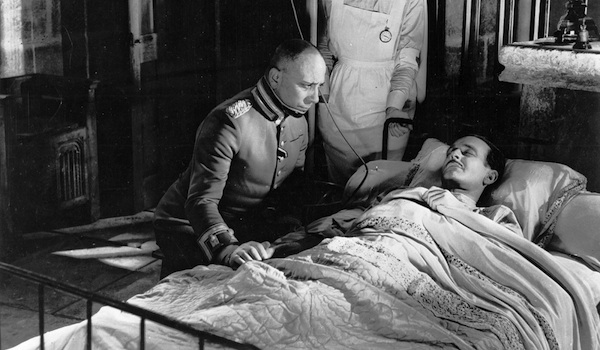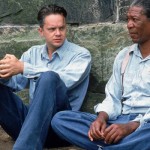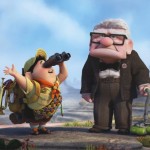Grand Illusion Review
Charlie Chaplin was once asked who he thought was the greatest director in the world. Jean Renoir was his answer, and Grand Illusion is arguably Renoir’s most respected and influential picture. An anti-war film perhaps unlike any other, the film relies 100% on character to relay its message. There’s absolutely no fighting going on, yet by the film’s end, we hear Renoir loud and clear: War ruins lives and dehumanizes us. With very strong acting, assured direction, and a tone that’s just spot-on, the film is nearly perfect. It earns its place in history, and the praise piled upon Renoir is deserved.
Grand Illusion takes place during WWI, and follows a pair of French officers—Captain de Boeldieu (Pierre Fresnay) and Lieutenant Marechal (Jean Gabin)—after they are shot down by a German officer, Captain von Rauffenstein (Erich von Stroheim), and sent to a POW camp. Seeing as they are officers, the two men and their fellow prisoners—including fellow French officer Rosenthal (Marcel Dalio)—are treated relatively well, though differences in class still remain. It’s de Boeldieu, a fellow aristocrat, that’s permitted to eat, drink, and socialize with von Rauffenstein, not Marechal. But de Boeldieu and Marechal do have a common goal: to escape and rejoin their countrymen on the front lines. And they’re willing to do whatever it takes to succeed.
It’s hard to single any one thing out as Grand Illusion‘s greatest strength because I think the whole is greater than the sum of the film’s parts. What’s so marvelous about it, though, is that Renoir manages to craft something that flows so well you don’t even realize the impact it’s had on you. While I was watching Grand Illusion, I recognized that it was a great film, but it wasn’t until the credits rolled that the magnitude of it hit me. Simply put, it’s a masterpiece.
Just as it’s difficult to single out one aspect of the production as the best, it’s hard to do so with the performances. Perhaps the film’s most important performance comes from Erich von Stroheim. His von Rauffenstein is a military man through and through, and he admires anyone with the same beliefs, whether they are German or not. It’s a surprising way of thinking, but it’s vital to the film’s success. If von Rauffenstein had simply been a venom-spewing villain, Grand Illusion would have amounted to nothing more than a prison break movie. With this character—especially when it comes to his relationship with de Boeldieu—the film lives and breathes. It’s full of meaning and much more powerful. None of this, of course, should take away anything from the film’s other actors, namely Jean Gabin and Pierre Fresnay. The former is the perfect everyman, and the latter is a picture of upper-class privilege in a situation where class means nothing. His transformation is just remarkable.
Much of the mystique around the film refers back to its mysterious title. What exactly is the Illusion? Is it the class structure, which clearly can’t function during a time of crisis? Or is it the idea that men can be adversaries and gentlemen? Maybe something else entirely, but whatever the case, Grand Illusion is a great one. It was the first foreign-language film ever nominated for Best Picture, it was the first film ever released in the Criterion Collection, and it’s earned a spot on countless all-time best lists. After finally seeing it, it’s not hard to see why. The film is a gem and deserves to be treasured.















